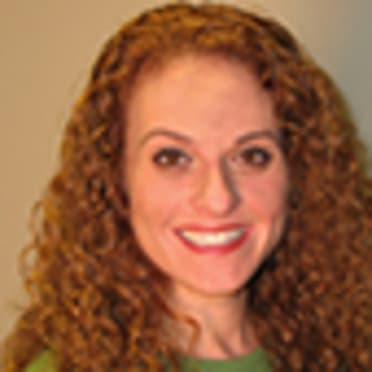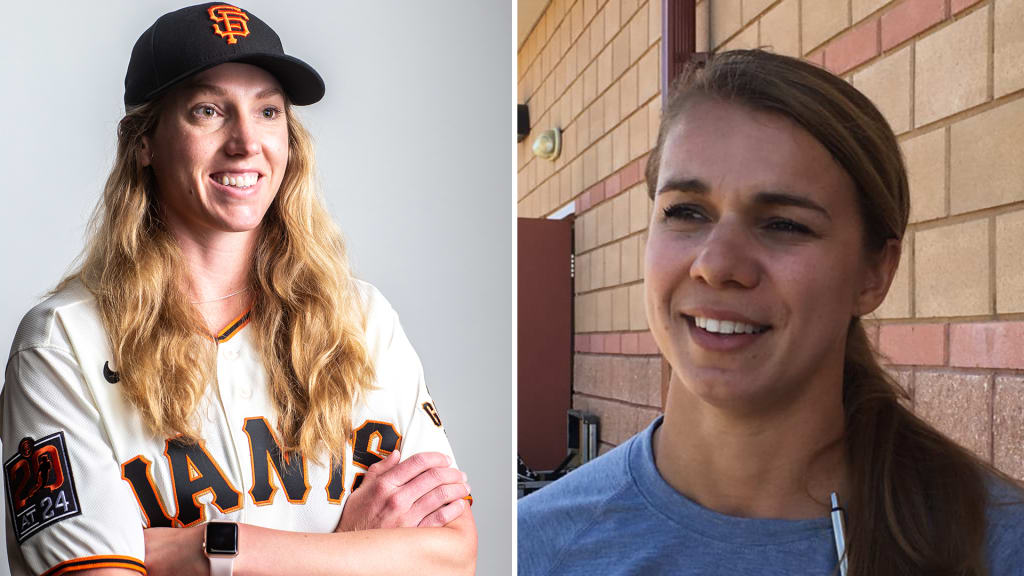
EDITOR'S NOTE: This story originally appeared in the May-June edition of Baseball Digest.
In baseball, history-making is usually left to the players on the field. But last winter, several clubs made trailblazing hires that signaled progress in segments of the game not known for inclusivity.
Teams hired women -- as coaches.
Rachel Balkovec is a hitting coach in the Yankees’ Minor League system, the first woman to be hired in that role. Rachel Folden is the first female coach in Cubs history, after being named lead hitting-lab technician and a fourth coach for their Rookie-level Arizona League team. Christina Whitlock was recently named a fourth coach for the Cardinals, assigned to work with Minor Leaguers.
And Alyssa Nakken made the biggest splash of the winter when the Giants announced in January that she would be an assistant coach on their Major League staff.
“It's something I definitely don't take lightly,” said Nakken, who turns 30 on June 13. “This is just a huge step for baseball and society, just with all of these women getting hired into these positions that have traditionally been held by men.”
Though their debut seasons have been delayed by the shutdown of professional baseball due to the pandemic, Balkovec and Nakken are on the cover of the May-June issue of Baseball Digest. This is historic, as they’re the first women in uniform to appear on the cover. They also were this close to being the first women ever to have that distinction.
But there was this one Baseball Digest cover, long, long ago -- 61 years ago, in fact -- titled “Baseball’s Darling Daughters.”
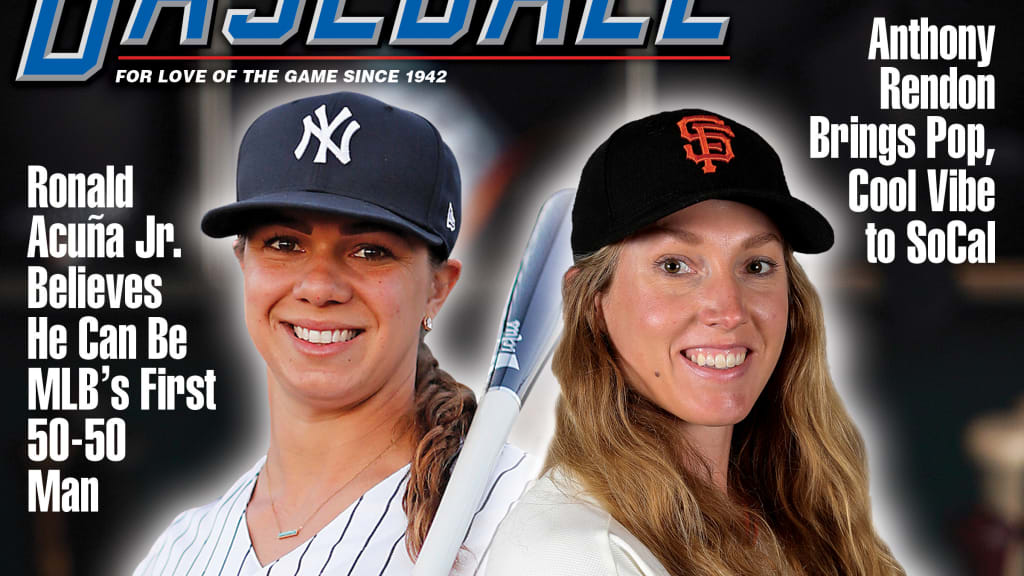
A sign of the times, the cover photo of that February 1959 issue was of “sweet-and-lovely” Sally Sewell, daughter of former Pirates pitcher Truett “Rip” Sewell. Sally, outfitted in a Dunes Las Vegas jersey and described as a “talented showgirl,” was one of several daughters of former ballplayers written about in the story. They were lauded for having carved out their own niche in the entertainment industry, because, alas, “professional baseball being limited, as it is, to boy children, the gals had to make their fame in other fields.”
Boy, have things changed.
Today, baseball, while still very male-oriented, has started to lean in. Women are being recruited and hired everywhere. This past offseason alone was historic several times over.
Balkovec and Folden were hired by their respective teams the same day last fall, and less than two months later, Nakken’s hiring was made public. The Cardinals, who were the first to hire a female strength and conditioning coordinator when they appointed Balkovec to that position in 2014, further cemented their reputation as one of the more forward-thinking clubs when they named Whitlock as a fourth coach in their Minor League system.
Consider this a trend upward.
“I think it’s important that all organizations see there are big pools of people to choose from to fill big and important roles,” Nakken said. “It doesn’t make sense to me that for so long, we’ve cut off 50% of the population to fill roles like that. This step is big.”
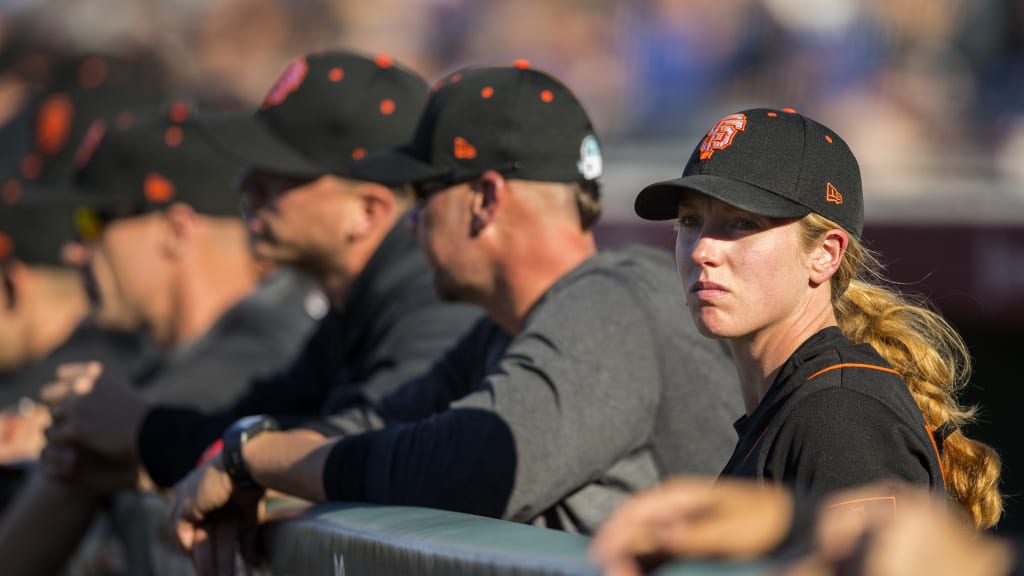
Women have been infused into the baseball workforce, albeit slowly, going back a couple of decades, when Kim Ng and Jean Afterman first held assistant general manager titles with two of the industry’s most prestigious clubs. Ng, who currently serves as MLB’s senior vice president of baseball and softball development, was the Yankees’ assistant GM from 1998 until 2001 before joining the Dodgers in a similar capacity.
Afterman replaced Ng in 2001 and has been with the Yanks ever since. In '12, the club added “senior vice president” to her assistant GM title.
But on the field, the presence of women has been scarce. For a while, the list of women in uniform consisted of two names. Justine Siegal, who nearly a decade ago threw batting practice to hitters with several teams during Spring Training, was hired by the A's in 2015 as a guest instructor for their instructional league team. Last year, Veronica Alvarez was hired by the A’s to be a guest catching coach during Spring Training.
There will be twice as many women in uniform in 2020. That number will probably grow over time and, while women in all facets of the industry are surely looking forward to this being less of a phenomenon and more commonplace, the women who have earned their recent titles understand how impactful their hirings have been for the industry -- especially with regard to younger people with future aspirations to work in baseball.
“It’s just special to be part of progress,” said Balkovec, a native of Omaha, Neb. “The word that comes to mind, especially now, is responsibility. I have a responsibility, and I also have a job to do, and to be respectful of it and be grateful for it, and to be mindful of it as I go through my day.”
The journey wasn’t easy. When Balkovec was first starting out, she dealt with an abundance of rejection. Offseasons were stressful. She knew waiting tables and working retail may have to suffice until she could find the next opportunity, which might be a little more than a low-paying internship, if she could find a team to take her calls.
The 32-year-old Balkovec’s résumé was impressive from the very beginning. She has two master’s degrees in human movement sciences. She played college softball at Creighton University and speaks fluent Spanish. In a time when baseball front offices constantly search for people with scientific minds who look at the game through a biomechanical lens, here was Balkovec, not only fascinated by that aspect of the game, but highly educated in it.
And yet ...
Following a Minor League strength and conditioning internship with the Cardinals she completed in 2012, Balkovec was struggling to find any team to give her a chance.
In the offseason heading into 2013, she received a call from one organization that had an internship available with its Rookie level team in Arizona. She interviewed with a male executive, in person, twice. He was impressed, told her he wanted to hire her, and to hold tight while he got the administrative work done to complete the hire.
“I’ll be in touch with you in a couple of days,” she remembered him telling her. Days passed without any contact. She followed up with phone calls and emails, and still, nothing.
A couple of weeks later, he called to tell her that he couldn’t hire her.
“The administration just didn’t feel comfortable hiring a woman,” he said. He was profusely apologetic, telling her he thought her résumé was great, that she interviewed well, and he wanted to bring her into the organization. Her gender, not her qualifications, was the problem.
Balkovec was a little surprised, and incredibly disappointed. But she was also relieved that her résumé wasn’t the reason she wasn't getting the job.
“It sucks that I’m being discriminated against, but at least I know that I'm on the right track,” Balkovec recalled thinking at that time.
But there was more bad news. That same man who wouldn’t hire her had contacted the other organizations that had open jobs in the Arizona League on her behalf. They all told him they had received her résumé and wouldn’t be able to hire her because of her gender.
“They all said, ‘No, we’re not hiring a woman,’” Balkovec remembered.
The following offseason, she made a bold move that she hoped would curb the rejection. She changed her name to Rae and made all of her résumé entries gender neutral, including identifying as a former Division I “athlete” rather than as a “softball player.”
The responses were immediate. She set up a couple of interviews over email. She also received one call in particular that turned awkward quickly.
“I’m looking for Rae?” the male voice said.
“This is she,” Balkovec answered.
After a few more uncomfortable exchanges, he asked Balkovec if they could talk the next day.
She never heard from him again.
“I was desperate because I had been discriminated against, so I changed my name, and it worked,” Balkovec said. “Ultimately, I changed it back quickly because I felt horrible. I had to trust that if they’re not going to hire me because I’m a woman, I don’t want to work for them. That eliminates 29 teams. I really just wanted to get on the phone with someone for a phone interview and they’d be so impressed that they’d be like, 'Well, maybe this will work.'”
There was one team that threw her a lifeline -- the Cardinals, the team that gave her that first internship years earlier. They hired her as their Minor League strength and conditioning coordinator, marking the first time a Major League team filled that role with a woman.
“I went from not even being able to get callbacks for an internship position to being a Minor League strength and conditioning coordinator, overseeing 250 athletes and strength coaches -- all men,” she said. “That was a tough time. Realistically, it was only one year of sitting out of baseball, but it could have easily turned into multiple if the Cardinals hadn’t come through.”
Today, with a biomechanics background, a specialization in eye-tracking and a wealth of knowledge of the cutting-edge technology that shapes player development, Balkovec is no longer an outlier. She’s a commodity.
Here’s what’s special about the recent coaching hires: They weren’t born from a directive from up above to specifically hire a woman. There was no pressure, either publicly or from within the industry, to diversify in this way, on the field. These women were hired simply because they were the most qualified. That’s a credit to decision makers being more forward thinking, and also a signal that, perhaps soon, women hired as coaches will become more … normal.
“What’s cool about it is we’re going to get to the point where it’s not a conversation piece anymore,” said Yankees general manager Brian Cashman, who approved the Balkovec hire on the recommendation of several player development staffers, including hitting coordinator Dillon Lawson.
“It’s just the norm. That’s where writing the stories is important, because the sooner we get there, the better, where it’s not a shock to the old-school system. It’s recognition that women bring as much to the table as men, and in many cases, more than men. We’re late to the game probably, but better late than never.”
Nakken’s journey was more localized. She had already been working for the Giants for five years when she got her big break.
She had different roles over the years, starting as an intern in 2014. She interviewed with 10 baseball operations staffers (all men), landed the internship and later helped with the MLB Draft, international scouting and preparing for the Trade Deadline.
She also took on roles on the administrative side, assisting with everything from postseason travel to coordinating World Series parties. She did all that while still compiling scouting reports in advance of each postseason series.
When Gabe Kapler was hired as Giants manager last offseason, the club overhauled its coaching operation. Nakken, acting as an ally and club employee who simply wanted to help, reached out to Kapler to ask how she could help him get acclimated. They spent considerable time together, talking things through.
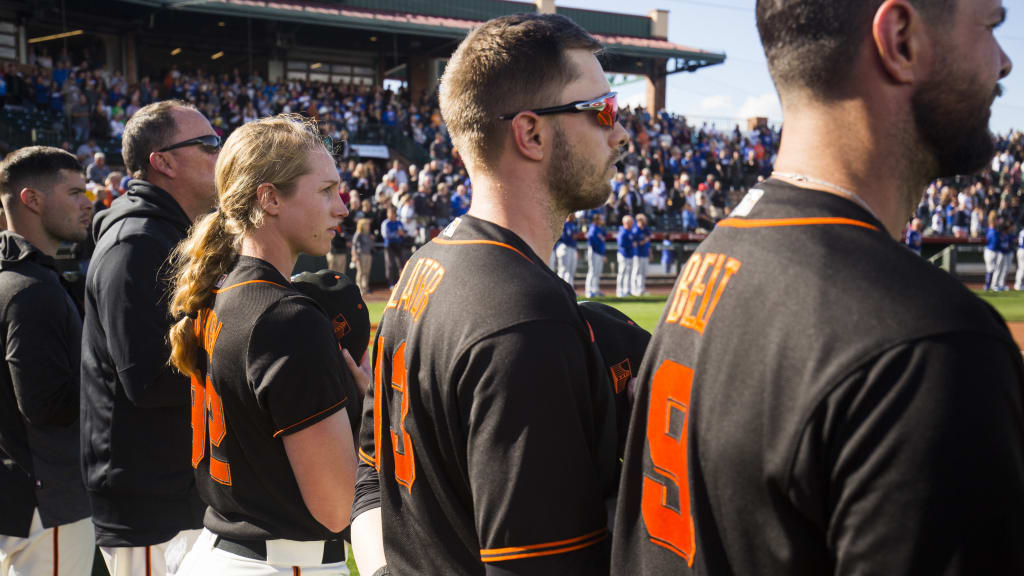
What Nakken did not know at that time is that these conversations would eventually lead to a groundbreaking job offer.
“Assistant coach really never came to mind,” Nakken said. “What I wanted to do was help this coaching staff and the new regime and get Gabe acclimated and be ready to take on this new role. All those guys were pretty new to the organization. I felt like I could come in and help streamline processes and just be a part of the baseball side of the organization.”
This was a dream job in every sense. Giants baseball has been a part of Nakken's life since birth -- literally. The Sacramento, Calif., native attended her first Giants game when she was three weeks old. She earned her master's degree in sports management at the University of San Francisco after earning her undergraduate degree at Sacramento State.
San Francisco, and, by extension, Oracle Park, is home.
Nakken’s defined role as a Giants coach is an evolving one. Before games, her duties include hitting ground balls and throwing batting practice, standard pregame coaching functions. During games, her role is still coming into scope, but she was expecting to be in the cages behind the dugout, helping players get ready to hit. She is also heavily involved with coordinating defensive positioning.
Nakken drew quite a bit of media attention when she first arrived to the Giants’ Spring Training facility in Scottsdale, Ariz., and she embraced it, understanding how much this means to young people -- especially girls -- aspiring to work in baseball.
“I still can't wrap my head around all of it,” Nakken said. “But when I was growing up and trying to figure out what it was I wanted to do, I never saw this as an opportunity, being in baseball as an adult. You didn’t see women in uniform, on the field, working with male athletes. You just didn't see it. I never thought it was a possibility.”
